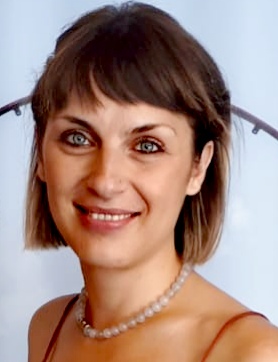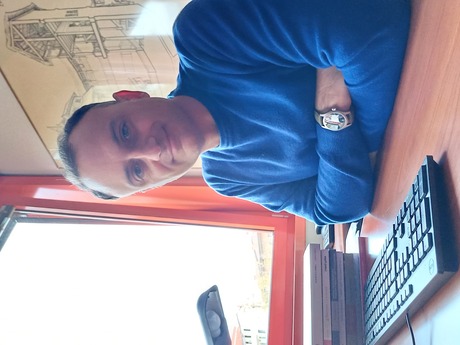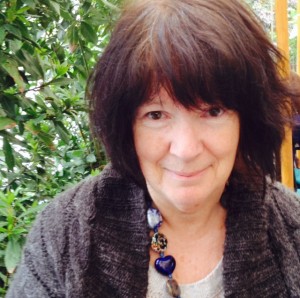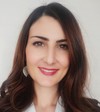Studying at the University of Verona
Here you can find information on the organisational aspects of the Programme, lecture timetables, learning activities and useful contact details for your time at the University, from enrolment to graduation.
Academic calendar
The academic calendar shows the deadlines and scheduled events that are relevant to students, teaching and technical-administrative staff of the University. Public holidays and University closures are also indicated. The academic year normally begins on 1 October each year and ends on 30 September of the following year.
Course calendar
The Academic Calendar sets out the degree programme lecture and exam timetables, as well as the relevant university closure dates..
| Period | From | To |
|---|---|---|
| I semestre (Lingue e letterature straniere) | Sep 27, 2021 | Jan 8, 2022 |
| II semestre (Lingue e letterature straniere) | Feb 14, 2022 | May 28, 2022 |
| Session | From | To |
|---|---|---|
| ESAMI LINGUE - sessione invernale | Jan 10, 2022 | Feb 12, 2022 |
| ESAMI LINGUE - sessione estiva | May 30, 2022 | Jul 23, 2022 |
| ESAMI LINGUE - sessione autunnale | Aug 29, 2022 | Sep 24, 2022 |
| Session | From | To |
|---|---|---|
| LAUREE LINGUE - sessione autunnale (a.a. 2020-2021) | Nov 8, 2021 | Nov 13, 2021 |
| LAUREE LINGUE - sessione straordinaria (a.a. 2020-2021) | Mar 28, 2022 | Apr 2, 2022 |
| LAUREE LINGUE - sessione estiva (a.a. 2021-2022) | Jul 11, 2022 | Jul 16, 2022 |
Exam calendar
Exam dates and rounds are managed by the relevant Foreign Languages and Literatures Teaching and Student Services Unit.
To view all the exam sessions available, please use the Exam dashboard on ESSE3.
If you forgot your login details or have problems logging in, please contact the relevant IT HelpDesk, or check the login details recovery web page.
Should you have any doubts or questions, please check the Enrollment FAQs
Academic staff
Study Plan
The Study Plan includes all modules, teaching and learning activities that each student will need to undertake during their time at the University.
Please select your Study Plan based on your enrollment year.
1° Year
| Modules | Credits | TAF | SSD |
|---|
2° Year activated in the A.Y. 2022/2023
| Modules | Credits | TAF | SSD |
|---|
3° Year activated in the A.Y. 2023/2024
| Modules | Credits | TAF | SSD |
|---|
| Modules | Credits | TAF | SSD |
|---|
| Modules | Credits | TAF | SSD |
|---|
| Modules | Credits | TAF | SSD |
|---|
| Modules | Credits | TAF | SSD |
|---|
Legend | Type of training activity (TTA)
TAF (Type of Educational Activity) All courses and activities are classified into different types of educational activities, indicated by a letter.
Russian Literature 3 (2023/2024)
Teaching code
4S002953
Credits
9
Language
Russian
Also offered in courses:
- Russian Literature 3 of the course Bachelor's degree in Languages and literatures for publishing and digital media
Scientific Disciplinary Sector (SSD)
L-LIN/21 - SLAVIC STUDIES
Courses Single
Authorized
The teaching is organized as follows:
Parte I
Parte II
Learning objectives
The course completes the three-year path aimed at acquiring the basics of Russian literary and cultural history. It is therefore linked to courses held in the preceding years complementing them and undertaking in-depth examination of topics related to Russian works and movements. At the end of the course students will be able to: 1) identify the main dynamics of modern and contemporary Russian historical and literary processes; 2) carry out a textual and comparative analysis using the acquired knowledge; 3) express autonomous and coherent opinions about outstanding moments of Russian cultural and historical development and analyse them properly.
Prerequisites and basic notions
Students must comply with the preparatory skills of Russian language and literature (exceptions are students for whom the course is a free choice). A knowledge of the Russian language of not less than B2 level is required.
Program
THE POETIC WORD AS A LIBERTARIAN EXPRESSION IN RUSSIAN LITERATURE AND SONG
The course focuses on the ethical and libertarian role of the poetic word, in its literary and musical expressions, within the Russian culture of the last three centuries. In Russia, literature has always had an alternative role, when not openly antagonistic, towards political power. The prestige of the poetic word fascinates civil society and scares the powerful, and the list of persecuted poets is very long, from Radiščev to Puškin, from Lermontov to Mandel'štam, up to the present day. In the Soviet twentieth century, then, a particular type of poetic word spread with particular naturalness especially among young people: the sung word, bearer of creative freedom and new customs and visions of the world. At the center of attention will be those cultural phenomena and in particular those forms of artistic expression (literary, musical, cinematographic) which in the various phases have posed as alternatives and criticisms of power and society. We will analyze some typologies of literary and poetic-musical expression which over the course of time have challenged, sometimes successfully, the various but always repressive emanations of Russian power. Some of the main themes: the figure of the poet and the myth of the Word; Puškin as a libertarian poet; the poetry of the avant-garde and the Russian Revolution; Anna Achmatova's Requiem; the poetry of the Khrushev Thaw; lagernaja pesnja and bardovskaja pesnja (the bard song of the 60s and 70s); 80s Soviet rock; the protest poetry of the 2000s. Examples of parallel artistic and cultural phenomena (music, cinema, performing arts...) will also be considered.
BIBLIOGRAPHY:
An anthology of texts will be made available at the beginning of the course through a handout. Furthermore, each student will have to read and study at least one novel chosen from a list that will be provided after the start of the course.
REFERENCE FILMOGRAPHY:
- Мне двадцать лет (1965), реж. m. Хуциев
- Зеркало (1975), реж. А. Тарковский
- Асса (1987), реж. C. Соловьев
- Брат (1997), реж. А. Balabanov
- Время ДДТ (2002), реж. В. Бледнов
- Лето (2018), реж. К. Серебренников
CRITICAL REFERENCE LITERATURE:
Roman Jakobson, Una generazione che ha dissipato i suoi poeti: Il problema Majakovskij, Torino, Einaudi, 2004.
M. Martini, Oltre il disgelo. La letteratura dopo l’Urss, Milano, Mondadori, 2002
G.P. Piretto, Il radioso avvenire. Mitologie culturali sovietiche, Torino, Einaudi 2003
Storia della letteratura russa, diretta da E. Etkind, G. Nivat, I. Serman e V. Strada. Il Novecento, Torino, Einaudi, 1989.
Artemy Troitsky, Compagno rock: la vera storia del rock sovietico, i movimenti giovanili, la perestrojka, Milano, Vallardi, 1987.
Артемий Троицкий, Back in the USSR, M., «Амфора» 2009.
G. Judina, A. Veneziano, I partigiani della luna piena. I poeti del rock in Russia, Salerno-Milano, I libri della frontiera, 2000.
Didactic methods
Frontal lessons in the classroom.
Learning assessment procedures
Method of development:
the exam is oral and consists of an interview during which the student will be asked to explain with precision and autonomous reasoning skills what has been acquired during the course and in individual preparation. The program does not differ for attending and non-attending students: the latter will be able to find the materials necessary for their preparation in the program, in the pantry and on the dedicated e-learning page; if necessary, they can ask the teacher for additions or clarifications during office hours.
Evaluation criteria
Objectives:
the exam aims to verify
- the acquisition by the student of the basic spatial-temporal and conceptual coordinates of the course
- adequate knowledge relating to the topics and materials analyzed during the course and / or foreseen in the program
- the ability to autonomously and with full knowledge of the facts of the historical, social and cultural phenomena characteristic of Russia, especially for the period analyzed in the course.
Contents:
the exam will focus on the contents of the program and on the literary, artistic and historical-cultural materials analyzed during the course.
Criteria for the composition of the final grade
Single vote out of thirty
Exam language
Russo e Italiano
Type D and Type F activities
Nei piani didattici di ciascun Corso di studio è previsto l’obbligo di conseguire un certo numero di CFU di tipologia D e di tipologia F.
CFU D (attività a scelta dello studente)
I CFU D possono essere acquisiti mediante:
- insegnamenti non obbligatori nel proprio piano didattico (previa approvazione del Presidente del Collegio didattico per insegnamenti non selezionabili in autonomia)
- attività accreditate dal Collegio didattico
- competenze linguistiche (diverse o ulteriori) rispetto a quelle obbligatorie
- tirocini o stage
- TALC (competenze trasversali).
Competenze trasversali TALC
Nota bene: i corsi TALC sono riconosciuti solo come CFU D.
Il numero di CFU D va calcolato complessivamente sull’intero triennio/biennio e non è legato all'annualità.
CFU F
I CFU F sono solitamente relativi ad abilità informatiche, competenze linguistiche, stage e tirocini e ulteriori attività formative accreditate in questa tipologia dal Collegio Didattico.
Nel corso di laurea in Lingue e Letterature Straniere sono previste le seguenti tipologie:
- 3 CFU per terza lingua (livello B1)
- 3 CFU per informatica.
Le competenze informatiche possono essere acquisite attraverso:
- il superamento della prova pratica presso le aule informatiche di Ateneo,
- la frequenza dei corsi attivati da scuole e centri accreditati dall’AICA (Associazione Italiana per l’Informatica e il Calcolo Automatico) o riconosciuti dalla Provincia e dalla Regione e superamento della relativa prova finale. Le domande per il riconoscimento delle competenze informatiche acquisite precedentemente vengono esaminate dalla Commissione per il riconoscimento delle Competenze Informatiche.
Lo studente ha comunque la possibilità di effettuare esperienze di stage e tirocini che però vengono riconosciuti all’interno dei crediti a scelta libera (CFU D).
To discover all the teaching activities accredited by the foreign teaching college click here
Career prospects
Module/Programme news
News for students
There you will find information, resources and services useful during your time at the University (Student’s exam record, your study plan on ESSE3, Distance Learning courses, university email account, office forms, administrative procedures, etc.). You can log into MyUnivr with your GIA login details: only in this way will you be able to receive notification of all the notices from your teachers and your secretariat via email and soon also via the Univr app.
Student login and resources
Gestione carriere
Assegnazione tutore
Attività accreditate D/F
Calendario didattico dettagliato
Cambio lingua curriculare
Competenze informatiche
Competenze linguistiche (prima e seconda lingua)
Competenze linguistiche in triennale (terza lingua CFU F)
Compilazione del piano didattico
Corso di Lingua portoghese
Erasmus+ e altre esperienze all'estero
Linguistic training CLA
Presentazione dei corsi di studio e Open day
Graduation
Saperi minimi
Stage e tirocini
Le attività di stage sono finalizzate a far acquisire allo studente una conoscenza diretta in settori di particolare interesse per l’inserimento nel mondo del lavoro e per l’acquisizione di abilità professionali specifiche.
Le attività di stage sono svolte sotto la diretta responsabilità di un singolo docente presso studi professionali, enti della pubblica amministrazione, aziende accreditate dall’Ateneo veronese.
I crediti maturati in seguito ad attività di stage saranno attribuiti secondo quanto disposto nel dettaglio dal “Regolamento d’Ateneo per il riconoscimento dei crediti maturati negli stage universitari” vigente.
- Tutte le informazioni in merito agli stage per futuri studenti sono disponibili alla pagina Stage e tirocini.
- Tutte le informazioni in merito agli stage per studenti iscritti sono pubblicate in MyUnivr - come fare per - stage e tirocini.
- Tutte le informazioni in merito agli stage per le aziende sono disponili alla pagina Stage e tirocini per azienze.
Ulteriori informazioni al seguente link https://www.univr.it/it/i-nostri-servizi/gestione-carriere-studenti-lingue-e-letterature-straniere/stage-e-tirocini-lingue-e-letterature-straniere

 stefano.aloe@univr.it
stefano.aloe@univr.it
 +39 045802 8409
+39 045802 8409

















































